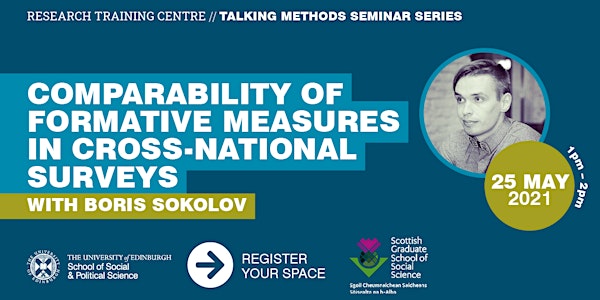
Comparability of Formative Measures in Cross-national Surveys
By Research Training Centre
In this seminar, Boris Sokolov will discuss the advantages and disadvantages of formative measures in cross-national survey research.

We are no longer taking bookings for this seminar. Please visit the RTC website (research-training-centre.sps.ed.ac.uk) to find out more about future seminars and training opportunities.
In this seminar, Boris Sokolov will discuss the advantages and disadvantages of formative measures in cross-national survey research.